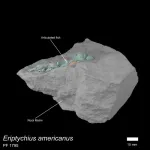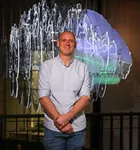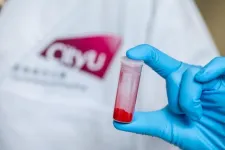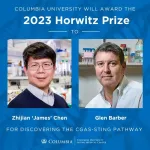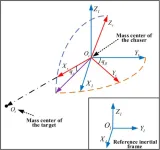(Press-News.org) Among available immunotherapies, the use of «CAR-T» cells is proving extremely effective against certain blood cancers, but only in half of patients. A main reason for this is the premature dysfunction of these immune cells, which have been artificially modified in vitro. A team from the Universities of Geneva (UNIGE), Lausanne (UNIL), the Geneva University Hospitals (HUG) and the Vaud University Hospital (CHUV), all part of the Swiss Cancer Center Léman (SCCL), has discovered how to prolong the functionality of CAR-T cells. By inhibiting a very specific metabolic mechanism, the team has succeeded in creating CAR-T cells with enhanced immune memory, capable of fighting tumour cells for much longer. These are very promising results, to be read in the journal Nature.
CAR-T cell immunotherapy involves taking immune cells - usually T lymphocytes - from a person suffering from cancer, modifying them in the laboratory to increase their ability to recognise and fight tumour cells, then readministering them to the patient. However, as with other types of immunotherapies, many patients do not respond to the treatment or relapse.
‘‘CAR-T cells must be massively multiplied before they can be administered,’’ explains Mathias Wenes, a research fellow who coordinated this research in the laboratory of Pr Denis Migliorini, Department of Medicine at the UNIGE Faculty of Medicine and Department of Oncology at HUG. ‘‘But the disease history of the patient, in combination with the amplification process, exhausts the cells: they reach a state of terminal differentiation that precipitates the end of their life cycle without leaving them time to act on the length.’’
A mechanism common to cancer cells and immune cells
In the absence of oxygen, cancer cells resort to a very specific survival mechanism: they metabolise the amino acid glutamine as an alternative source of energy through a chemical reaction known as ‘‘reductive carboxylation’’. ‘‘Immune cells and cancer cells have a fairly similar metabolism, which enables them to proliferate very rapidly. We have indeed discovered here that T cells also used this mechanism,’’ explains Alison Jaccard, a PhD student in Professor Ping-Chih Ho’s laboratory in the UNIL-CHUV Department of Oncology and the study’s first author.
To investigate the role of reductive carboxylation, the scientists inhibited this mechanism in CAR-T cells in mouse models of leukaemia and multiple myeloma, two blood cancers. ‘‘Our modified CAR-T cells multiplied normally and did not lose their capacity to attack, indicating that reductive carboxylation is not essential for them,’’ Mathias Wenes sums up.
Mice cured with these CAR-T
What’s more, the mice treated in this way were virtually cured of their cancer, a result well beyond the research team’s expectations. ‘‘Without reductive carboxylation, the cells no longer differentiate as much and maintain their anti-tumor function for longer. And even, and this is the heart of our discovery, they tend to transform into memory T lymphocytes, a type of immune cell that retains the memory of the tumour elements that needs to be attacked.’’
Memory T lymphocytes play a key role in the secondary immune response. They retain the memory of pathogens previously encountered and can reactivate when its reappears - as in the case of a virus, but also in the case of tumour pathogens - providing much longer-lasting immune protection. ‘‘The same principle applies to CAR-T cells: the higher the number of memory cells, the more effective the anti-tumour response and the better the clinical outcome. The state of differentiation of CAR-T cells is therefore a key factor in the success of the treatment.”
A cross-talk between metabolism and gene expression.
Unfolded, the DNA contained in each of our cells would measure about two metres in length. To fit into the tiny cell nucleus, it is condensed around proteins called histones. In order for gene transcription to occur, specific DNA regions need to unwrap, which happens by modifying histones. When T cells are activated, histone modifications take place which, on one hand, condense DNA and prevent transcription of genes ensuring longevity, while on the other hand open up and allow transcription of genes driving their inflammatory and killing function. Reductive carboxylation acts directly on the generation of metabolites, small chemical elements that modify histones, to influence DNA packaging and to prevent accessibility to longevity genes. Its inhibition maintains the opening of those genes and promotes their transformation into long-lived memory CAR-Ts.
Soon a clinical application?
The inhibitor used by the scientists to block reductive carboxylation is a drug already approved for the treatment of certain cancers. ‘‘We therefore propose to reposition it in order to extend its use and produce more powerful CART cells in vitro. Of course, their efficacy and safety need to be tested in clinical trials, but we have very good hopes!’’, conclude the authors.
An example of what the Swiss Cancer Center Léman can achieve
This potentially translatable work would never have been possible without the network put in place by the SCCL. Indeed laboratories in not less than four lemanic institutes joined forces to bring this impactful project to fruition: UNIL, CHUV, UNIGE and HUG. The alliance between these institutions fosters collaborations between groups that enable synergies in areas that complement each other (tumor metabolism, oncoimmunology, immune cell engineering).
END
Strengthening artificial immune cells to fight cancer
Scientists in Western Switzerland have discovered how to improve the anti-tumour power of CAR-T cells, artificial immune ‘‘super-cells’’ used against blood cancers
2023-09-20
ELSE PRESS RELEASES FROM THIS DATE:
Prehistoric fish fills 100 million year gap in evolution of the skull
2023-09-20
A 455-million-year-old fossil fish provides a new perspective on how vertebrates evolved to protect their brains, a study has found.
In a paper published in Nature today (Wednesday 20th September), researchers from the University of Birmingham, Naturalis Biodiversity Centre in Leiden, Netherlands; and the Natural History Museum have pieced together the skull of Eriptychius americanus.
The research, funded by the Leverhulme Trust, suggests that the ancient jawless fish found in ancient deposits in ...
Study finds firearm injuries increased in gentrified neighborhoods
2023-09-20
Brigham researchers reported that gentrified neighborhoods had a 62 percent higher firearm injury incidence rate than non-gentrified communities with comparable sociodemographic characteristics
Understanding the reason for this increase is vital to reducing future firearm injuries
Gentrification can have a ripple effect on communities. While it can improve certain conditions in typically low-income areas, rising housing costs can displace residents, causing social disruption and other downstream effects. Investigators from Brigham and Women’s Hospital, a founding member of the Mass General Brigham healthcare system, conducted a study using national data to examine the relationship ...
Scientists reveal how the effects of psychosis spread throughout the brain
2023-09-20
Psychoses like schizophrenia cost billions of dollars annually and derail the lives of people struggling with the disease. Now Monash University researchers have modelled how the effects of psychosis spread through the brain, allowing them to isolate areas where these changes may originate from and which could be targeted by therapies designed to reduce the disease’s progression.
The study, published today in the prestigious Journal of the American Medical Association Psychiatry, details how the scientists were able to map and model the spread of brain changes in people with different stages of psychoses such as schizophrenia,from people newly ...
Ya-Chieh Hsu, Ph.D. (Harvard) and Xuebing Wu, Ph.D. (Columbia) receive inaugural Glenn Foundation Discovery Awards
2023-09-20
Santa Barbara, CA and New York, NY -- The Glenn Foundation for Medical Research (GFMR) and the American Federation for Aging Research (AFAR) are pleased to announce the inaugural recipients of the
2023 Glenn Foundation Discovery Awards:
Ya-Chieh Hsu, PhD, Professor of Stem Cell and Regenerative Biology at Harvard University, and a Principal Faculty Member at the Harvard Stem Cell Institute.
Xuebing Wu, PhD, Assistant Professor of Medical Sciences (in Medicine and in Systems Biology), Columbia University.
The Glenn Foundation Discovery Award was created to support research projects with strong potential to develop pioneering discoveries ...
Decoding depression: Researchers identify crucial biomarker that tracks recovery from treatment-resistant depression
2023-09-20
A team of leading clinicians, engineers, and neuroscientists has made a groundbreaking discovery in the field of treatment-resistant depression. By analyzing the brain activity of patients undergoing deep brain stimulation (DBS), a promising therapy involving implanted electrodes that stimulate the brain, the researchers identified a unique pattern in brain activity that reflects the recovery process in patients with treatment-resistant depression. This pattern, known as a biomarker, serves as a measurable indicator of disease recovery and represents a significant ...
CityU researchers develop novel photo-oxidation therapy for anticancer treatment
2023-09-20
A research team led by scientists from City University of Hong Kong (CityU) has achieved a significant breakthrough by inventing a new class of near-infrared-activated photo-oxidants that can effectively kill cancer cells without requiring oxygen. The photo-oxidants induce a unique form of cancer cell death that can overcome cancer cell resistance. The findings offer a new strategy, called ‘photo-oxidation therapy’, and provide a promising direction for the development of anti-cancer drugs.
Photodynamic therapy, an innovative ...
Multimillion-dollar scientific grant program releases third cycle of funding to increase foundational understanding of sarcoidosis
2023-09-20
WASHINGTON (September 20, 2023)—The Ann Theodore Foundation Breakthrough Sarcoidosis Initiative (ATF-BSI), in partnership with the Milken Institute, launched its latest round of funding today. Up to $3.4 million in total funding will be made available to researchers from around the world whose work aims to increase scientific understanding of sarcoidosis. The program is accepting applications for two-year research projects and intends to award four to six research grants from doctorate-level investigators at qualifying research-based institutions worldwide. Awardees may be eligible for a third year of funding.
Sarcoidosis is an inflammatory ...
Zhijian ‘James’ Chen and Glen Barber awarded Horwitz prize for discovering the cGAS-STING pathway
2023-09-20
NEW YORK, NY (September 20, 2023)—Columbia will award the 2023 Louisa Gross Horwitz Prize to Zhijian ‘James’ Chen and Glen Barber for discovering the cGAS-STING pathway, a key component of one of the body’s first line of defenses, the innate immune system.
When pathogens infiltrate our cells, they leave behind traces of their DNA. These molecular fingerprints are detected by our cGAS-STING pathway, which sounds the alarm and mobilizes the immune system to eliminate invading threats. Research on the cGAS-STING pathway has revealed the ...
Scientists researched on finite-time anti-saturated proximity control with a tumbling non-cooperative space target
2023-09-20
The past few decades have witnessed the burgeoning development of on-orbit servicing in light of various meaningful space applications such as repair of malfunctioning satellites, debris removal, on-orbit assembly, and so on. As for the orbit-servicing targets, they are usually divided into 2 categories, i.e., cooperative and non-cooperative ones, based on whether the space targets have active cross-link communication and cooperative identifiers with the servicing spacecraft or not. Before executing the orbit-servicing task, close-range rendezvous and proximity is an inevitable process in which ...
Australian biobank aims to discover new treatments for children with genetic muscle diseases
2023-09-20
An Australian-first biobank will be established to improve and discover new treatments for children with genetic muscle diseases.
The National Muscle Disease Bio-databank, co-led by Murdoch Children’s Research Institute, Monash University and Alfred Health, will advance research into understanding why children develop genetic muscle diseases. The project forms part of a $2.5 million Medical Research Future Fund grant awarded to the team for research into congenital muscle diseases.
These diseases, spanning dystrophies and myopathies, are characterised by severe muscle weakness, usually from infancy, that can impact swallowing, ...
LAST 30 PRESS RELEASES:
Smithsonian planetary scientists discover recent tectonic activity on the Moon
Government censorship of Chinese chatbots
Incorporating a robotic leg into one’s body image
Brain imaging reveals how wildlife photos open donor wallets
Wiley to expand Advanced Portfolio
Invisible battery parts finally seen with pioneering technique
Tropical forests generate rainfall worth billions, study finds
A yeast enzyme helps human cells overcome mitochondrial defects
Bacteria frozen in ancient underground ice cave found to be resistant against 10 modern antibiotics
Rhododendron-derived drugs now made by bacteria
Admissions for child maltreatment decreased during first phase of COVID-19 pandemic, but ICU admissions increased later
Power in motion: transforming energy harvesting with gyroscopes
Ketamine high NOT related to treatment success for people with alcohol problems, study finds
1 in 6 Medicare beneficiaries depend on telehealth for key medical care
Maps can encourage home radon testing in the right settings
Exploring the link between hearing loss and cognitive decline
Machine learning tool can predict serious transplant complications months earlier
Prevalence of over-the-counter and prescription medication use in the US
US child mental health care need, unmet needs, and difficulty accessing services
Incidental rotator cuff abnormalities on magnetic resonance imaging
Sensing local fibers in pancreatic tumors, cancer cells ‘choose’ to either grow or tolerate treatment
Barriers to mental health care leave many children behind, new data cautions
Cancer and inflammation: immunologic interplay, translational advances, and clinical strategies
Bioactive polyphenolic compounds and in vitro anti-degenerative property-based pharmacological propensities of some promising germplasms of Amaranthus hypochondriacus L.
AI-powered companionship: PolyU interfaculty scholar harnesses music and empathetic speech in robots to combat loneliness
Antarctica sits above Earth’s strongest “gravity hole.” Now we know how it got that way
Haircare products made with botanicals protects strands, adds shine
Enhanced pulmonary nodule detection and classification using artificial intelligence on LIDC-IDRI data
Using NBA, study finds that pay differences among top performers can erode cooperation
Korea University, Stanford University, and IESGA launch Water Sustainability Index to combat ESG greenwashing
[Press-News.org] Strengthening artificial immune cells to fight cancerScientists in Western Switzerland have discovered how to improve the anti-tumour power of CAR-T cells, artificial immune ‘‘super-cells’’ used against blood cancers
